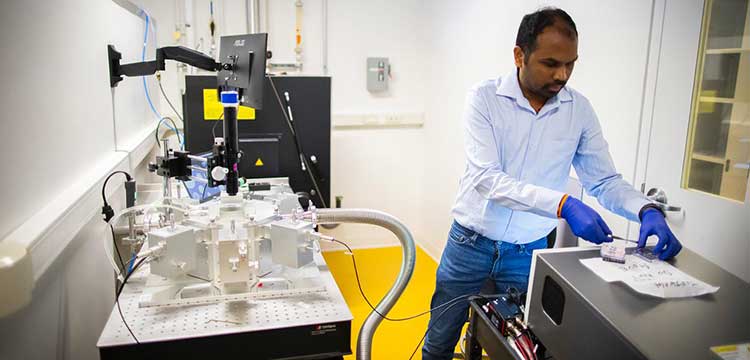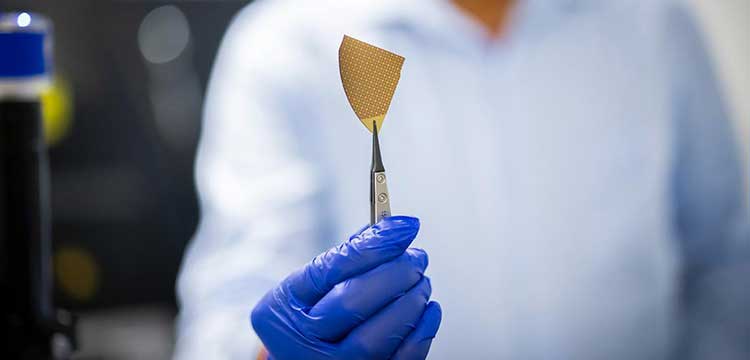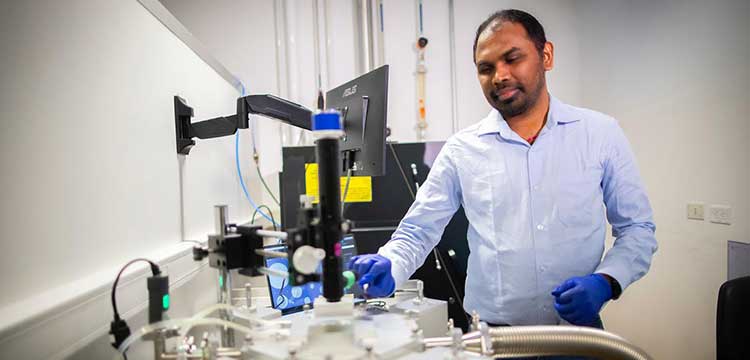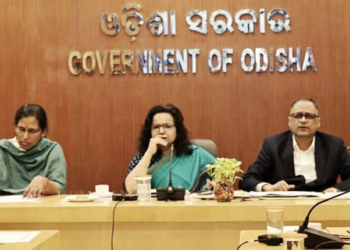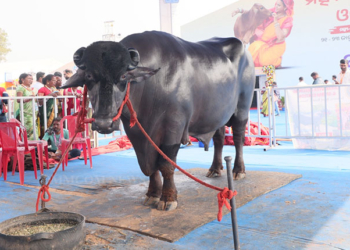Philadelphia/Bhubaneswar: Not every big dream begins in a big city. Sometimes, it starts in a small shop on a dusty lane. In Naktideul village of Odisha’s Sambalpur district, the son of Dasarathi Pradhan quietly nurtured a dream much larger than his surroundings. While his father was struggling to keep the family afloat from a small shop, young Dhiren Kumar Pradhan grew up watching life’s struggles up close. But beyond the quiet of his village, he carried another rhythm — the rhythm of curiosity.
That rhythm has now carried him thousands of miles away, to one of the world’s most prestigious institutions — the Ivy League’s University of Pennsylvania in the United States. There, Dr. Dhiren Kumar Pradhan is leading pioneering research that has resulted in a breakthrough: the creation of a revolutionary computer chip capable of withstanding 1,000 degrees Celsius — a temperature hotter than Venus, the most unforgiving planet in our solar system.
From A Village Classroom To Global Science
Dhiren’s journey is a story of grit and relentless pursuit of knowledge. Born and raised in Naktideul, a village surrounded by forests nearly 100 km from Sambalpur town, he began his education at the Naktideul Primary UP School and studied there until Class VII. He then moved to P.M. High School, Jagannath Prasad, where he showcased his brilliance by securing the first position in his Class X board exams.
After completing his higher secondary education at Naktideul College, he pursued a B.Sc. in Physics at Gangadhar Meher University, Sambalpur. His thirst for knowledge only deepened, leading him to complete an M.Sc. in Physics at the same university. Determined to go further, he cleared the GATE examination and secured admission to the Indian Institute of Technology (IIT) Kharagpur, where he specialised in Solid State Technology during his M.Tech. His academic journey did not stop there. Dhiren went on to pursue a Ph.D. in Chemical Physics at the University of Puerto Rico, San Juan, before finally joining the University of Pennsylvania as a postdoctoral researcher in the Department of Electrical and Systems Engineering.
A Chip Built For Impossible Conditions
In a conversation with Ommcom News, Dr. Pradhan explained his team’s breakthrough — a ferroelectric diode chip made of aluminum scandium nitride (AlScN). At just 45 nanometers thick — nearly 1,800 times thinner than a strand of human hair — the chip can operate continuously for 60 hours at 1,000°C. Scientists have described it as “unprecedented,” noting that no memory device has ever endured such extremes before.
“This chip is designed to handle extreme heat where no other memory device can survive. It opens up new frontiers for exploration and technology,” Dr. Pradhan explained.
The applications of this chip are vast and critical. It can be deployed in:
- Space exploration missions, such as Mercury, Venus, and near-solar probes
- Deep-earth drilling, including mining, oil and gas exploration, and geothermal energy
- Nuclear reactors, where high heat and radiation can cripple conventional electronics
- Defense, encompassing military and aeronautic technology in fighter jets, rockets, and spacecraft
- Heavy industries with extreme temperatures, such as steel plants, metal foundries, and volcanic research
The chip’s unique crystal structure provides stability, durability, and high-speed switching capabilities, making it an ideal candidate for storing and processing data in conditions once considered impossible.
The Challenges And The Future
Yet, even with such promise, the chip has its limitations. Storage density and endurance—how much data it can store and how many times it can be rewritten—are areas where further improvements are needed. But Dr. Pradhan and his colleagues are already working on solutions.
“Making this device was extremely challenging. We worked for years to find the perfect balance, what I call the ‘Goldilocks thickness.’ But once we achieved it, we realised this technology could open doors that had been shut for decades,” said Dr. Pradhan.
Proud Roots, Global Impact
Despite his success, Dr. Pradhan remains deeply connected to his roots. He points out with pride that he is the only scientist from Odisha—and from India—heading such a high-impact project in the U.S.
His success is not just personal—it is a message of possibility for students in small towns and villages who dare to dream beyond their circumstances.
A Message for the Next Generation
“Every student must have a clear goal and keep working toward it. Today, opportunities and resources are greater than ever. But many young people are losing focus, spending endless hours on social media, watching Reels and videos that do not add value. Instead, they should use the internet wisely—to learn, to explore, and to grow. That is the way to achieve the dreams you set for yourself,” Dr. Pradhan said.
The Bigger Picture
From a very small village and a poor family in Sambalpur’s Naktideul to the cutting-edge laboratories of the University of Pennsylvania, Dr. Dhiren Kumar Pradhan’s journey is a powerful reminder that dreams know no geography. With determination, the right guidance, and relentless curiosity, even the smallest beginnings can lead to discoveries that change the world.





